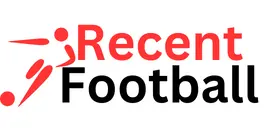Milan’s start to the season has been nothing short of disastrous, with just one point earned from two matches and a defensive performance that raises serious concerns. The team has conceded four goals in just 180 minutes of play, and it could have been worse. There’s a lack of clear identity on the pitch, and their prolonged possession is proving to be both unproductive and uninspiring.
Star player Rafael Leão has struggled to make an impact, particularly in front of goal. Under the new management of Paulo Fonseca, who the club appointed, Milan’s problems seem amplified. As they reflect on their first two matches, questions about whether this was the right choice for a coach are understandably surfacing.
In a surprising decision, Fonseca opted to start Noah Okafor over Luka Jovic to fill in for the injured Álvaro Morata, claiming that Okafor was better suited for high pressing. This raised eyebrows, as effective pressing should involve the entire team rather than relying on a single player. Throughout their match against Torino, Milan displayed a lack of intensity for the majority of the game, only showing urgency in the final minutes when they battled back from 0-2 to 2-2.
Against Parma, Milan’s pressing was minimal. The opposition cleverly allowed Milan to dominate possession, controlling 61% of the ball. Fabio Pecchia’s team allowed Milan to push forward, waiting to strike on the counter. This lack of protection while attacking left Milan exposed, as every rapid transition from Parma turned into a dangerous opportunity. The players were disconnected, and Strahinja Pavlovic’s presence in defense prevented an even worse outcome, stepping in to patch up the numerous gaps.
The Milan defense lacked organization; Pavlovic was left to fend off multiple attackers on his own. The first goal they conceded highlighted this issue, with poor marking from both Calabria and Hernandez leaving dangerous players open. It showed a lethargic approach, barely two minutes into the match.
There seems to be a sense that Fonseca and his players underestimated Parma’s young talents—players like Man, Sohm, Mihaila, and Bonny, who thrive in open space. The experience shown by Bernabé, the playmaker with exceptional technique, further illustrates Parma’s potential threat, as they have played some of the most dynamic football in Serie B over the last couple of seasons. Milan’s overconfidence led to vulnerabilities that Parma exploited time and again.
Rafael Leão, once seen as a burgeoning talent, hasn’t progressed as hoped. He remains comfortable on the left wing, dribbling and sprinting but seldom cutting in or taking shots himself. At 25, he must step up and take responsibility, channeling a more ruthless mentality reminiscent of Cristiano Ronaldo’s early days. It’s not enough to have skills; he needs to embody the killer instinct that champions must possess.
After the loss to Parma, Fonseca took full responsibility, stating, “I am the one responsible, all the blame is mine.” While such humility can be commendable, especially early in the season, it also feels like an anxious admission of failure. There is a need for positivity and encouragement, which seems lacking. Accepting blame is a significant gesture, but if it becomes a recurring theme without tangible improvement, it risks turning into mere empty rhetoric instead of a catalyst for change.
As Milan navigates this challenging start, they must find solutions quickly to avoid further struggles in the seasons ahead.
